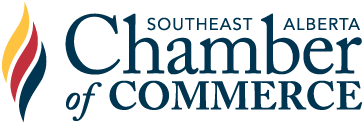How to Prepare, Prevent, Protect, and Respond to COVID-19
There are currently 62 confirmed cases of the Novel Corona Virus in Canada. While Canada has not experienced the impacts that other countries are experiencing right now, we must be prepared for all scenarios and closely follow best practices around the world. The Prime Minister, Justin Trudeau, today announced the creation of a new Cabinet committee on COVID-19.
“We take the international spread of COVID-19 seriously, and Canadians can be assured that their government and health officials are working tirelessly to keep them safe. This new committee will continue to monitor the health and economic impacts of the virus, and make sure our response takes all possible measures to prevent and limit the spread of the virus in Canada.”
Justin Trudeau
Make a Plan for Your Business
Prepare you business by having a pandemic plan in place. Know when the situation is an issue or a crisis for your business and what you can do about it. You can use this Crisis Communications Planning Guide to establish response and messaging. To plan out the next steps use the Business Continuity and Recovery Planning Guide.
What is the Government Doing?
- The Public Health Agency of Canada activated the Health Portfolio Operations Centre to ensure effective planning and coordination of the Agency’s response efforts, in collaboration with international, federal, provincial, and territorial partners.
- A Special Advisory Committee of Canada’s Chief Medical Officers of Health and senior public health officials is in place and focused on the coordination of federal, provincial and territorial preparedness and response across Canada’s health systems.
- Routine traveller screening procedures are in place at all of Canada’s ports of entry, and additional border screening measures have been expanded to all international airports in Canada to help identify any travellers returning to Canada who may be ill, and to raise awareness among travellers about what they should do if they become sick.
What Can You Do?
- wash your hands often with soap and water for at least 20 seconds
- avoid touching your eyes, nose, or mouth with unwashed hands
- stay home if you are sick
- when coughing or sneezing: cover your mouth and nose with your arm or tissues to reduce the spread of germs
- immediately dispose of any tissues you have used into the garbage as soon as possible and wash your hands afterwards
- avoid visiting people in hospitals or long-term care centres if you are sick
